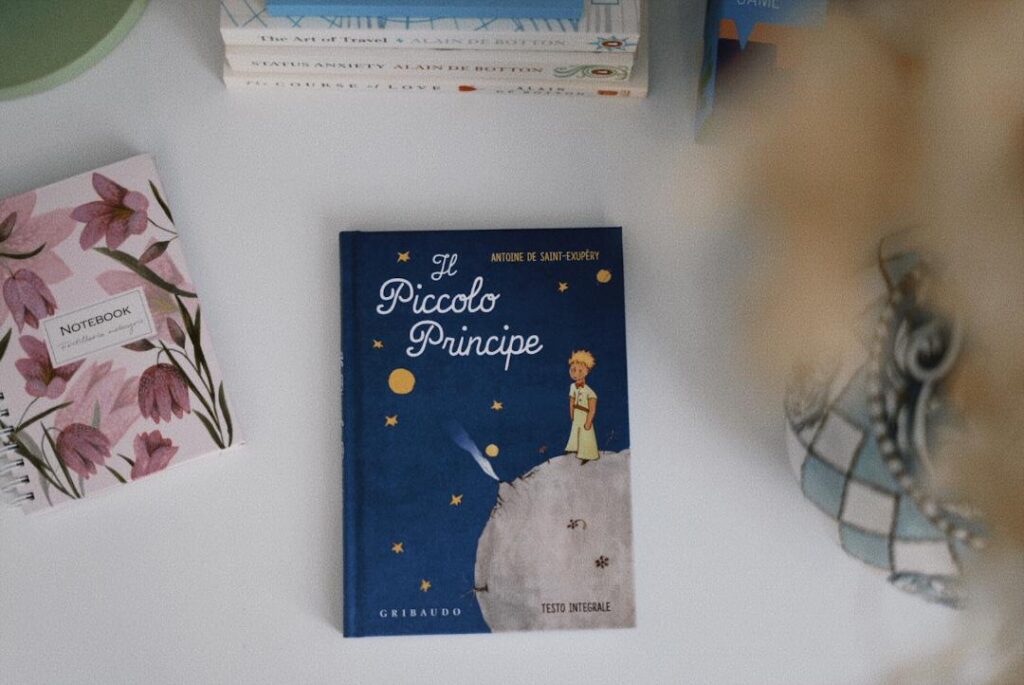
There are books we outgrow. And then there are books that grow with us. The Little Prince has always been, for me, a kind of compass – one that pointed inward, rather than north. It was one of my favorite books as a child, the one I returned to obsessively, first in French, then in English, later in other languages I was learning, as if by changing the language I could uncover some deeper, truer layer of meaning. This weekend, I read it again, this time in Italian, and something shifted. I had bought it in a recent trip to Italy with some friends and some part of me knew it wasn’t really a purchase. It was a retrieval.
The story hadn’t changed. The drawings were still charming in their awkwardness, the baobabs still threatened the small planet, the fox still asked to be tamed. And yet, everything felt different. I no longer read with a child’s hunger for adventure. I read with the quiet ache of an adult who has tasted loss and learned how easily we forget the essential things.
As a child, I loved the rose because she was mysterious, dramatic, demanding – a puzzle I wanted to solve. Now, she broke my heart. I saw in her the fragility of the people we love, the difficulty of loving them well, the foolish ways we fail to recognize what is real until it is too far away to touch.
The fox’s lesson, “Tu diventi responsabile per sempre di quello che hai addomesticato” (You are forever responsible for what you have tamed), was no longer a beautiful sentence to underline. It was a recognition. A reckoning. The kind of truth that doesn’t ask for agreement, only acknowledgment. I understood now that love is not just tenderness or desire. It is presence. It is showing up, again and again, even after the object of your love is gone. Especially then.
And the stars, how differently they shine now. As a child, I thought the stars were magical because the little prince had returned to them. Now I understand that their magic lies in absence. In the echo of a laugh we can’t hear anymore, but still listen for in the night.
Reading it again, in a new language, I felt I was not just reading The Little Prince. I was meeting him again, under different skies. He hadn’t changed, but I had. And in that difference, I saw the true genius of the book: its ability to remain the same while meaning something entirely new.
Perhaps that is what makes it eternal. It’s not a book you finish. It’s a book that waits, patiently, until you are ready to hear it differently, to read it not with your eyes, but with everything you’ve lived through since the last time you turned its pages.
